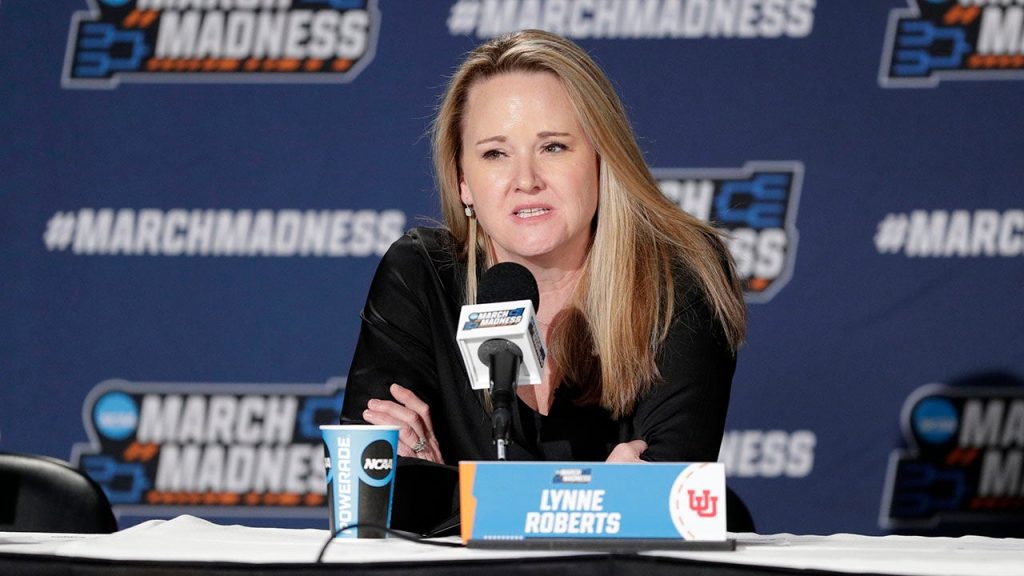Utah women’s basketball coach Lynne Roberts revealed that her team had to change hotels upon arriving for the NCAA Tournament due to “racial hate crimes.” The incidents occurred in Coeur d’Alene, Idaho, where the team was staying for games being played in Spokane, Washington. Roberts did not provide specifics about the incidents but described them as disturbing and concerning for the team’s safety. Despite the diversity typically seen on college campuses, racism is still a reality that can affect anyone, as Roberts pointed out.
Utah, South Dakota State, and UC Irvine were forced to stay in Idaho due to a lack of hotel space in the Spokane area during the tournament. The racial hate crimes experienced by the Utah team were a shock to both the players and staff, regardless of their background. Roberts emphasized the importance of feeling safe in an NCAA Tournament environment and expressed frustration that such incidents occurred during what should have been a positive and joyous experience for the team. The NCAA and Gonzaga University stepped in to help Utah relocate to a new hotel after the incidents took place.
Roberts described the incident as a “distraction and upsetting and unfortunate” occurrence that tainted what should have been a celebratory time for the team. She stressed the need for everyone involved to feel safe and supported during the tournament, expressing disappointment that such a negative experience had marred their participation. Both the NCAA and Gonzaga expressed their dismay over the situation, reaffirming their commitment to values of inclusivity and respect that were not reflected in the racial hate crimes experienced by the Utah team. The incident served as a reminder of the prevalence of racism and the need for vigilance in addressing and preventing such behavior.
Despite facing this challenging situation, the Utah women’s basketball team continued to compete in the NCAA Tournament. The team’s resilience and determination were evident as they pushed forward in the face of adversity, focusing on their performance on the court despite the off-court challenges they had encountered. The incident served as a test of their unity and strength as a team, prompting discussions about how to address and overcome incidents of racism and hate in the sports world and beyond.
Roberts’ comments highlighted the impact of the racial hate crimes on the Utah team’s experience at the NCAA Tournament. The incidents served as a wake-up call about the reality of racism and discrimination that can affect individuals regardless of their background. By speaking out about the challenges they faced, the team shed light on the need for greater awareness and action to address such issues within the sports community. The support and assistance from the NCAA and Gonzaga in relocating the team underscored the importance of standing together against hate and intolerance in all its forms.
In the aftermath of these troubling events, the Utah women’s basketball team continued to compete with determination and resilience, demonstrating their commitment to overcoming adversity on and off the court. The incidents served as a reminder of the ongoing struggle against racism and discrimination in society, prompting calls for greater vigilance and action to create a more inclusive and welcoming environment for all. Despite the challenges they faced, the team’s unity and solidarity remained strong, serving as a beacon of hope and inspiration for others facing similar struggles in the sports world and beyond.


